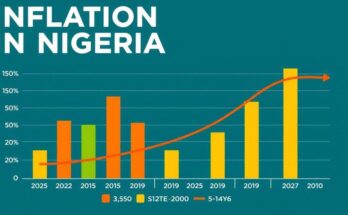Argentina has lifted its 50-year ban on live cattle exports to boost its economy and promote competition. This deregulation is part of reforms under President Javier Milei, aimed at enhancing trade and attracting foreign investment. With a strong agricultural sector, Argentina looks to improve its export capacity in the beef market, although the move may disrupt the domestic meat industry.
Argentina has lifted its longstanding ban on live cattle exports, a policy that has been in place since 1973. This significant change aims to deregulate the nation’s economy and stimulate market competition. The agriculture secretariat announced this decision on February 26, expressing that it would promote “greater competition within the meat and livestock chain.” Effective immediately, the policy permits the export of cattle for slaughter for the first time in over fifty years.
As a leading global supplier of high-quality beef, Argentina’s agricultural sector is crucial for generating foreign currency, driven by exports of beef, corn, soybeans, and wheat. These exports are vital for financing imports and servicing national debt, underscoring their importance to the economy. The government’s move to relax the ban comes amid efforts under President Javier Milei’s administration to foster trade and economic growth.
In early February, the administration announced a temporary five-month tax cut on grain and derivative exports to incentivize international trade. Additionally, last year, the government reduced beef export duties from 9% to 6.75% to enhance competitiveness in the global market, aiming to attract foreign investments and minimize state intervention. Argentina is recognized as one of the top beef producers worldwide, with a cattle herd of about 53 million.
In 2024, Argentina’s beef exports reached 935,000 metric tons, an increase from the previous year and marking the highest volume exported in a century, although falling short of the record 981,000 tons achieved in 1924. The country exported various beef products to a total of 53 foreign markets last year, with 70% of shipments directed towards China, followed by the European Union and Israel. The lifting of the ban is expected to create new export avenues but poses potential challenges for the local meatpacking industry, with increased competition from Brazilian firms already established in the market.
The lifting of Argentina’s 50-year ban on live cattle exports is a pivotal move aimed at promoting economic growth and competitiveness. With the country’s strategic agricultural sector playing a vital role in international trade, the new policy is anticipated to enhance export opportunities while creating challenges for local producers. Overall, this decision underscores Argentina’s commitment to deregulation and fostering a more open economy.
Original Source: www.marineinsight.com




